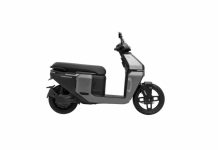Renault is considering investing in an electric vehicle (EV) facility in South Korea, specifically Busan. The company aims to expand its production capacity and manufacture up to 200,000 electric cars annually at the proposed facility.
The investment is estimated to be more than one trillion won, approximately 703 million Euros. If the plans proceed as intended, production could commence as early as 2026.

Factory in Busan
Renault already operates a factory in Busan that currently produces seven internal combustion engine (ICE) models. The company’s executive vice president, Guido Haak, met with Busan Mayor Park Heong-joon in Paris to discuss the potential investment and emphasized the significance of the Busan plant as an essential production base. Haak stated that Renault intends to accelerate its transition to future vehicles through substantial investments.
Pros of Renault’s Investment in an EV Facility in South Korea:
- Expansion of Electric Vehicle Production: Investing in an EV facility allows Renault to expand its production capacity for electric vehicles. With the global shift toward electric mobility, this investment positions Renault to meet the growing demand for electric cars domestically in South Korea and for potential export markets.
- Access to South Korean Market: South Korea has a robust domestic market for electric vehicles, with a growing demand for environmentally friendly and technologically advanced cars. By investing in an EV facility in South Korea, Renault can tap into this market and potentially increase its market share.
- Partnership Opportunities: Renault’s partnership with Geely in designing and producing electric, hybrid, and gasoline-fueled vehicles in Korea can provide access to Geely’s regional expertise and resources. This collaboration can lead to synergies and shared knowledge, benefiting both companies in technology development and cost optimization.
Cons of Renault’s Investment in an EV Facility in South Korea:
- Competition from Local Carmakers: South Korea is home to prominent domestic car manufacturers such as Hyundai and Kia, which have a strong presence in the local market. Renault will face stiff competition from these established players, who better understand local consumer preferences and have a well-established sales network.
- Financial Risk: The investment in a new EV facility represents a significant financial commitment for Renault. If market conditions change or demand for electric vehicles does not meet expectations, Renault could face financial challenges and potential losses.
- Regulatory and Policy Factors: The success of Renault’s investment in South Korea’s EV market will depend on various factors, including government policies, regulations, and incentives to promote electric vehicle adoption. Changes in government policies or a lack of adequate support for electric vehicles could affect the market dynamics and the viability of Renault’s investment.
- Technological Advancements: The electric vehicle market is highly dynamic, with rapid technological advancements and evolving consumer preferences. Renault must stay at the forefront of technological innovation and adapt to changing market trends to remain competitive in the long run.
Conclusion
Renault Korea faces challenges competing with local carmakers in South Korea, as evidenced by a 10% decline in sales from January to May compared to the previous year. Renault Korea is a subsidiary of approximately 53% owned by Renault, 34% by Geely, and 13% by Samsung.
Last year, Geely and Renault announced a partnership to design and produce electric, hybrid, and gasoline-fueled vehicles in Korea for domestic sales and exports, as reported by KED Global. The ultimate success or challenges Renault faces will depend on various market dynamics, execution strategies, and external factors that may arise in the future.
KedGlobal and Koreatimes
































